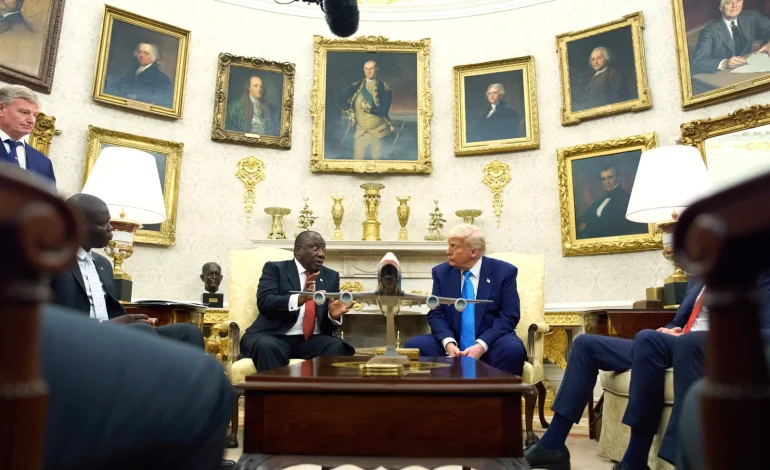At a White House meeting this week, President Donald Trump confronted South African President Cyril Ramaphosa with claims of a “white genocide” against Afrikaner farmers, citing a video of white crosses as supposed evidence. The exchange has reignited global scrutiny of South Africa’s rural crime and land reform policies.

To cut through the political noise, Wyoming Star (WS) sought insight from Lizette Lancaster, member of the Crime and Justice Information and Analysis Hub at South Africa’s Institute for Security Studies (ISS).
WS: The White House video suggested a “genocide” of White farmers. What do the data actually show?
The idea of a ‘white genocide’ taking place in South Africa is completely false.
White people, and white farmers, are the least at risk of violent crime and murder compared to other racial or ethnic groups in South Africa. White people generally are far wealthier, own more land, and have a far better quality of life than Black people. This would not be the case if there was a ‘white genocide’ taking place.
From our last census in 2022, of the total population of 60 million people, 4.639 million were White. If there were a genocide against White Afrikaners, their murder rate would be higher than that of other racial categories — which is not the case.
WS: What do the most recent farm-attack numbers look like?
For perspective, in 2023, there were 49 murders on farms (not all White farmers; some victims were Black farm workers). In that year, there was a total of 27,621 murders recorded nationally. The overwhelming proportion of the victims (around 80%) were poor, under- or unemployed young Black males. Murder victimisation is far more linked to class, gender, and location than race.
WS: If it is not ethnic targeting, what drives rural violence?
The primary motive for almost all farm attacks (over 95%) is robbery.
Smaller numbers have to do with domestic violence between residents, arranged killings for insurance payouts, or accidental killings that are initially recorded as murders.
There is no evidence that farm attacks are driven by anything more than criminality.
The rates at which the perpetrators of farm attacks are arrested and prosecuted are unacceptably low. However, this is not an indication of a lack of concern by the criminal justice system in relation to White farmers. Indeed, the government has long prioritised rural safety and, in 2018, adopted the National Rural Safety Strategy.
WS: If it is not ethnic targeting, what drives rural violence?
The South African Police Service has seen a deterioration in its overall capabilities. The national murder detection rate is below 12%. The conviction rate for perpetrators of farm murders is higher than for murders generally.
WS: How has the land-reform debate affected farmers’ sense of security?
With regards to land confiscations, no farmer has had land confiscated in South Africa since the birth of democracy in 1994.
Property rights are entrenched in our constitution. The new act focuses on abandoned land or land posing a health, safety or environmental risk. It is similar to the U.S.’s eminent-domain legislation.
The bottom line is that South Africa has a crime problem, not a genocide problem.
Risk varies, but high-income areas and areas where tourists go are generally very safe.










The latest news in your social feeds
Subscribe to our social media platforms to stay tuned